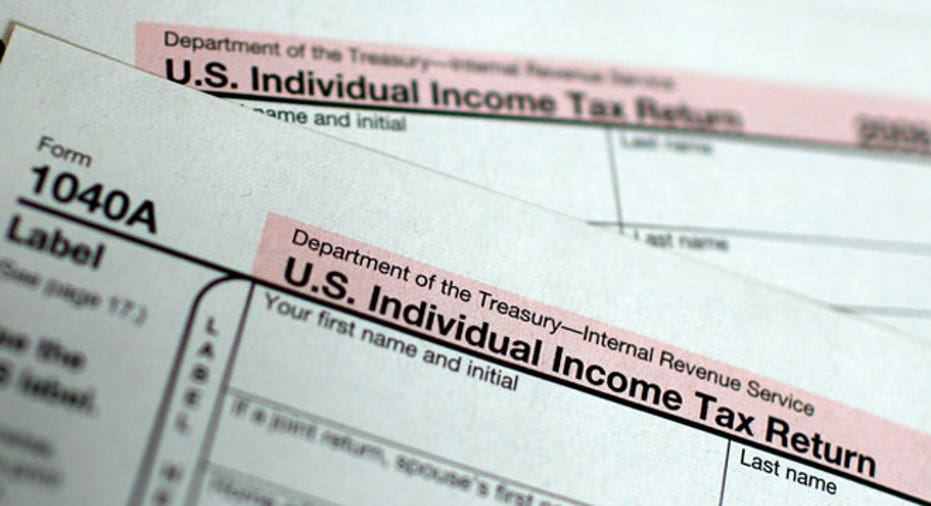Ohio to Vote on $1.4B Tax Cut for Small Business Owners

More than 700,000 small business owners in Ohio likely have an eye on the state Senate ahead of its budget vote this week.
The proposed budget includes a $1.4 billion tax cut for entrepreneurs, which would cut taxes in half for business owners that report company income on their personal taxes. The cut – called for by Governor John Kasich in his two-year budget plan – would let small business owners deduct 50% of their earnings up to $750,000.
The small business tax cut had been taken out of the Republican-controlled House’s budget proposal, which instead offered an across-the-board income tax reduction of 7% for all taxpayers. The Senate, in its bill, decided to add back in the small business tax cut, rather than lower tax burdens for everyone in the state.
“I favor the small business income tax cut, because I think it will spur economic activity,” says Ohio State Senate President Keith Faber (R-Celina). “Small businesses employ 80% of the people in Ohio, and they’re going to be more likely to put money back into the economy.”
Sen. Faber says he had been disappointed in the lack of job creation and economic activity created by a previous across-the-board tax cut equaling $800 million. However, he says in the Senate’s discussions this week, he will be looking for more ways to cut back on taxes for all Ohio residents, in addition to the small business owners.
How Much Will the Cut Affect the Economy? National Federation of Independent Business Ohio Executive Director Roger Geiger calls Ohio a “high-tax state,” and says a tax cut is exactly what small businesses need to jumpstart the local economy.
“Small businesses are the right group to target, because it’s the greatest group for expansion and growth … rather than just giving corporate America more tax breaks,” says Geiger.
But State Senator Charleta Tavares, (D-Columbus), isn’t so sure the expensive tax cut will lead to huge economic gains, referencing research by The Plain Dealer that showed 80% of small businesses affected will receive tax breaks worth less than $400.
“Very few small businesses will really realize any kind of savings, or enough so that they will hire anybody, or invest in any piece of equipment,” says Sen. Tavares.
Higher-income business owners making between $500,000 and $750,000 would see savings slightly over $22,000.
Sen. Tavares says she would rather address the needs of the smallest businesses, rather than more well-to-do business owners, like “lawyers, hedge fund managers and passive investors.”
“I think we need to look at the needs of micro-enterprises -- businesses with 1 to 5 employees – and ask them, what is it you need to get yourself over the hump to invest more or hire? Sometimes it’s providing more contracts, or eliminating a barrier,” says Tavares.
But small business owners in the state say lowering taxes in any way would be a huge help – even if they weren’t able to hire new employees immediately.
Sarah Forrer, the owner of Main Street Cupcakes, with three locations in Hudson, Rocky River and Medina, calls the proposed tax cut “phenomenal.”
“Any small business tax cut would be positive and would have a snowball effect on a business like ours. The tax cut would help us grow the business, because we’d be able to save money to buy more equipment. Then down the line, we can hire another employee to operate the equipment, we can bake more cupcakes and we can make more profit,” says Forrer.
And Albert Macre, a small-business owner who runs a restaurant, an accounting practice and a land services firm, says he has “no doubt” the tax cut would help him with hiring.
“Especially in the land services business, which at this point is the most lucrative, you’re talking about $22,000 in freed cash flow I could reinvest in the business,” says Macre. He says a tax cut would be the most effective tool to help him grow his business, as opposed to loosening regulations at the state level.
Forrer and Macre echo Sen. Faber’s belief about the long-term helpfulness of the proposed tax break.
“It’s not just about direct job growth. Maybe the cut won’t allow [one business] to hire, but it will allow them to put money back into their business, and update their technology,” says Macre. “And then the manufacturer of the technology may be able to hire.”



















